Strategic Considerations for
Anglo-Australian Identitarians
Abstract
This paper argues that Anglo patriots should use a dual political-cultural strategy to defend the historic Australian nation and reestablish the liberal nationalist state built by the founders. The recent success of nationalist protest parties in many Western societies, including Australia, indicates that voters are ready to confer significant political and cultural niches on leaders who are willing to challenge the dominant culture. There are ways forward.
Contents
| Part 1 (appears on this page) | Part 2 (scroll to end for link) |
| I. Introduction: Goals & winning conditions II. Political activism III. Cultural activism IV. Feedback: the virtuous cycle (a) Multiculturalism (b) Risks of feedback (c) Personal activism V. Choosing a nationalism |
V. Choosing a nationalism (cont.) (a) Ethnic (b) Liberal (c) Economic (d) Republican (e) Civic (f) Reactive VI. Comparing Types of Nationalism |
I
Introduction
The heights of Australian politics and culture have been hijacked by the leftist multicultural establishment. Anglo identitarians – those who think of themselves as part of Australia’s historic identity originating in British settlement or more broadly as part of European civilization – have been marginalized by the anti-Western left. The trend has been apparent for decades in politics and the culture industries. The process began in the universities and mass media. As a result Australia’s Western identity is ever more obscured by hostile news, commentary and curricula. It is being drowned by indiscriminate immigration and oppressed by globalist elites. The historic Australian nation is assailed from all sides at a time when it is leaderless, not protected by the sinews of government but tied up and gagged by them.
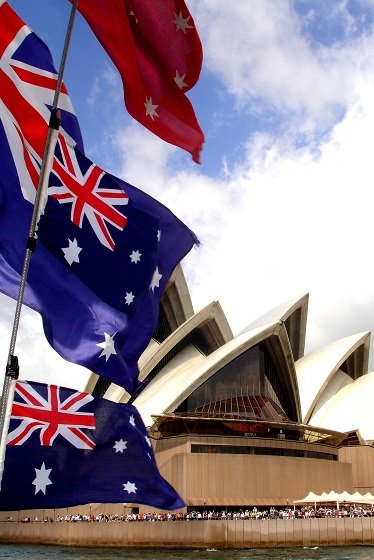 To fight back, people need a vision of the Australia they want. For what should they fight? The second half of this chapter compares types of nationalism that have been pursued through Australia’s history. For present purposes, nationalists and conservatives will know the fight is won or at least going in a winning direction when assimilation is once again winning over ethno-cultural diversity as a guiding principle for choosing immigrants; in particular when the refugee intake is ended and the migrant intake is greatly reduced and limited mainly to people of European descent; when the Chinese and Indian nations are no longer colonizing Australia and relations with these rising powers are stabilised; when schools desist from radical indoctrination and teach children the truth about their nation’s and civilisation’s glorious history; when our sons and daughters are not pitted against each other in a fabricated gender war; when civil liberties are secured largely by keeping the state out of the private realm; when UN mandates are lifted to restore freedom of association, allowing citizens to choose among whom they live and do business; when core institutions are reformed to become more compatible with human nature instead of socially engineering and herding citizens; when the multicultural apparatus is dismantled as a system designed to oppress the nation and is replaced with a democratic multiculturalism that includes fair representation for Anglo Australians; when foreign ownership is once again regulated to protect Australian industry and home owners; in short when the historic nation throws off its shackles and reasserts its prerogatives.
To fight back, people need a vision of the Australia they want. For what should they fight? The second half of this chapter compares types of nationalism that have been pursued through Australia’s history. For present purposes, nationalists and conservatives will know the fight is won or at least going in a winning direction when assimilation is once again winning over ethno-cultural diversity as a guiding principle for choosing immigrants; in particular when the refugee intake is ended and the migrant intake is greatly reduced and limited mainly to people of European descent; when the Chinese and Indian nations are no longer colonizing Australia and relations with these rising powers are stabilised; when schools desist from radical indoctrination and teach children the truth about their nation’s and civilisation’s glorious history; when our sons and daughters are not pitted against each other in a fabricated gender war; when civil liberties are secured largely by keeping the state out of the private realm; when UN mandates are lifted to restore freedom of association, allowing citizens to choose among whom they live and do business; when core institutions are reformed to become more compatible with human nature instead of socially engineering and herding citizens; when the multicultural apparatus is dismantled as a system designed to oppress the nation and is replaced with a democratic multiculturalism that includes fair representation for Anglo Australians; when foreign ownership is once again regulated to protect Australian industry and home owners; in short when the historic nation throws off its shackles and reasserts its prerogatives.
These policies will be enacted only when Anglo-Australians become sufficiently mobilised and organised to vote for their ethnic interests and build lobby, media, and educational organizations so powerful that wise politicians avoid offending national sensibilities or appearing less than eager to preserve national identity.
Because information is usually incomplete, especially concerning complex matters of policy, it is prudent in choosing goals to start with the most securely known interests. The most certain interests are biological, including personal health and a family that is safe and prosperous. That is why it is vital to have a robust diversified economy, secure borders and safe neighbourhoods. At the next layer of biological interests, one should invest in social cohesion and the secure identities upon which it relies. School curricula should induct children into their culture and history. Without such knowledge it is impossible for young adults to know themselves and Australia’s place in world history.
How to achieve those goals? I propose a dual strategy of political and cultural activism, with the two linked so as to mutually reinforce. I also discuss how individuals can contribute.
II
Political Activism
The successes of the Brexit and Trump campaigns point to the feasibility of advancing Western identitarian goals through electoral politics. In Australia the same indication is provided by the success of parties that, together, are breaking the political duopoly that has dominated government since the Second World War. Minor parties’ collective share of the national vote rose sharply at the 2016 federal elections. In late 2017 it had reached about 30 percent of the vote, and appears to be rising.

Senator Pauline Hanson
These minor parties challenge taboos – “political correctness” – and are supported mainly by Anglo and others of European descent. They include Pauline Hanson’s One Nation party, the Shooters, Fishers and Farmers Party, the Liberal Democrat headed by Senator David Leyonhjelm, and Katter’s Australian Party led by Senator Bob Katter. The trend is apparent to an extent in two parties that emphasise Christian values, the Australian Conservatives led by Senator Cory Bernadi, and the Christian Democratic Party, led by Reverend Fred Nile.
Greatest success was enjoyed by Pauline Hanson, whose party won four senate positions (from a total of 76) in the 2016 federal election. Her support came from people who felt betrayed by the political class’s support of globalism, who were hurting economically and concerned with the immigration-induced demographic transformation evident in the capital cities. Many were disturbed by domestic Islamist terrorism and attributed this to both mainstream parties allowing large scale Muslim immigration. They were concerned about foreign purchases of the best farms and infrastructure. They were tired of the constant sniping from the PC industry. They felt, not without justification, that they were losing their country.
The electoral base of these minor parties consisted mainly of Anglo-Australians, defined broadly to mean individuals who have assimilated and identify with the British-derived nation that provided the explorers and pioneers, the iconic poets such as Henry Lawson, and the Anzacs of the two world wars. A demographic analysis of Pauline Hanson’s supporters by John Black shows them to be situated in regional areas and outer suburbs of large cities. They are trades people and retirees, all predominantly Anglo categories.1 Precise figures are not provided, but the Anglo share of One Nation voters was greater than their two thirds share of the overall population. The European share of One Nation voters was greater than their 80% of the population.
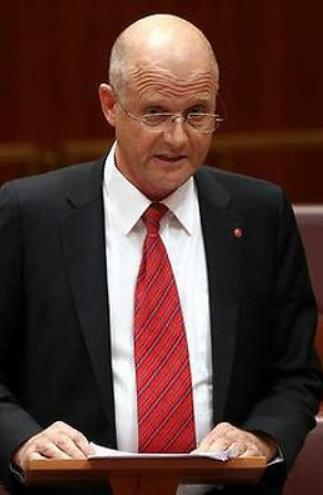
Senator David Leyonhjelm
Not all parties with an Anglo base are patriotic. The so-called Greens are an example. Their voters are largely inner city professionals. They advance policies typical of the anti-Western, anti-Christian, university-indoctrinated inner-city demographic. The other minor parties inadvertently defend Anglo interests as the consequence of advancing policies that protect traditional lifestyles and Christian values.
In a subsequent analysis, Black observed that the Turnbull government was attempting to win back One Nation voters by tough talk about citizenship and refugees.2 He argued that Turnbull was mindful of Senator Hanson’s wide support from “English-speaking Anzacs”, “English-speakers”, “Kiwis”, “disaffected and angry, white, Australian-born English speakers”, and “Poms”, the great majority being immigration conservatives.
Further evidence of ethnic polarisation comes from the 2016 census analysed by Rick Morton, The Australian’s social affairs writer, and demographer Bernard Salt. Articles by them appeared in The Weekend Australian, 15 April 2017.3 They report that large scale Chinese and Indian immigration is transforming Sydney and Melbourne, driving the Anglo population towards minority status. This is “contributing to a split down the middle of the country between Australia’s colonial past and its future.” Morton adheres to The Australian’s long-term editorial line by implying that Asianisation is inevitable and that Anglo-Australia represents the colonial past. Bernard Salt then analysed the figures reported by Morton. He agreed that Australia is being cleft in two by high levels of ethnically unselected immigration. He noted that if these migration trends remain in place for a few more decades, the result will be a “redefinition of the once reasonably united Australian people”.
Such radical transformation and the resulting conflict and intensification of majority ethnic identity helps explain the increasing success of protest parties, especially the popular-nationalist One Nation.
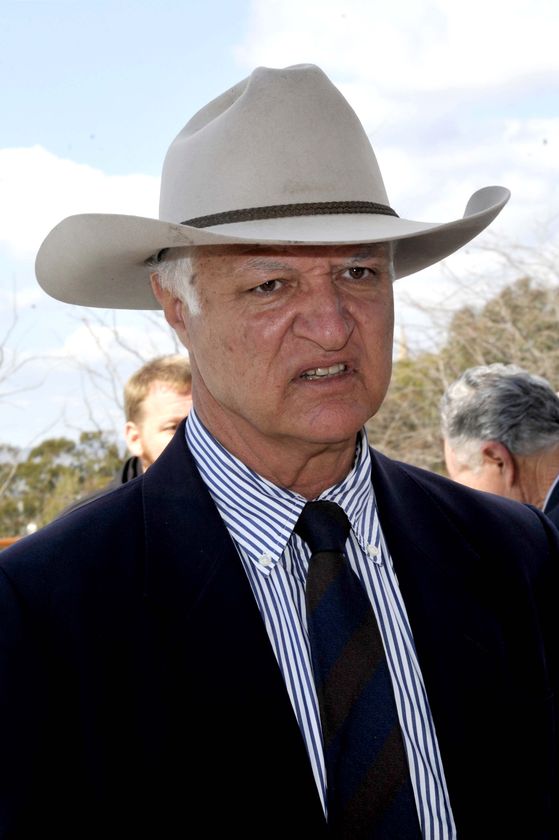
Senator Bob Katter
As noted, most One Nation supporters are Anglo Australians who reject “political correctness”, the coercive edge of the left-multicultural establishment. The racial discrimination being practised against mainstream Australians is becoming increasingly obvious.4 The ironically-named human rights industry mainly targets the Anglo population. As political scientist Jennifer Oriel commented, the cultural Marxist left has “promoted minority supremacy” over Western majorities by keeping immigration doors open, punishing conservative speech and taking over institutions such as the ABC. Brexit and Trump are early shots in the “fight for the West”. Oriel declares the need to “take our civilisation back.”5
The German-American economist and social theorist Hans-Hermann Hoppe adopts a libertarian perspective but implies that it overlaps ethnic nationalism. He seeks to identify the most likely supporters of movements that oppose globalism, multiculturalism and unrestricted immigration. They are, he maintains, similar to Pauline Hanson’s base:
Given the present constellation of affairs, any promising libertarian strategy must, very much as the alt-right has recognized, first and foremost be tailored and addressed to this group of the most severely victimized people: white married Christian couples, in particular if they belong to the class of tax payers rather than tax consumers, and everyone most closely resembling or aspiring to this standard form of social order and organization can be realistically expected to be the most receptive audience for the libertarian message.6
One Nation’s appeal to Anglo Australians has profound implications. A party could dominate Australian politics if it became identified in the public mind as representing mainstream Australia. At the same time, the census reveals the nation is splitting into ethnic zones, accelerating the rise of identity politics, including among Anglo Australians. The makeup of One Nation’s supporters shows that the nation is not as far gone as its enemies hope, that survival is possible. For many journalists and commentators it is a bitter fact that the original Australian nation is not dead.

Senator Cory Bernardi
One Nation is showing the honesty and courage necessary to represent mainstream Australians and thus the national interest, especially on the issues of Islamic immigration, foreign ownership, and leftist bias in public broadcasting. The party would be allocating resources efficiently if it invested in appealing to its Anglo base, because Anglos are most likely to respond positively and because they are a majority of the population.
As a nationalist party that represents the majority population, One Nation or its successors could become a major political force. However there are obstacles to achieving this, the greatest being that the party’s ethnic appeal is due to the intuitions of the leadership. Party leaders care about Australia and are courageous but like the mainstream parties are not versed in the sociology or history of ethnicity and nationalism. Their ethnic vision of society is implicit. Beyond Pauline Hanson’s wish that Australia return to a relatively united culture, her party has not described the Australia they want in realistic demographic terms. This places One Nation among conventional political parties, not at the cutting edge of reform and renewal.
Pauline Hanson’s biographer, Anna Broinowski, summarises her nationalism as a deep nostalgia for the monocultural Anglo society of her childhood.7 The left and minority chauvinists disparage nostalgia for any European society. In reality it is noble to be nostalgic for the sense of belonging and community that Australia is losing. There is nothing wrong with such emotion as part of a social vision. But nostalgia can only serve that function if it is attached to analysis. That requires cultural expertise and vision. Politicians cannot be expected to cover all bases. They rely on intellectuals in the humanities and social sciences. The anti-national left’s domination of the universities helps explain why nationalist social analysis is weak.
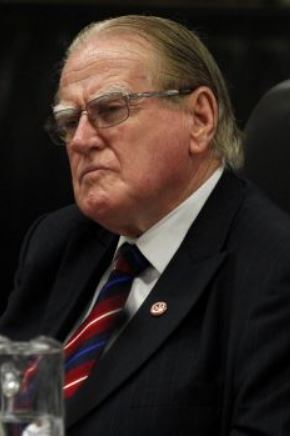
State Senator Fred Nile
A clear factual narrative would explain how the cultural elite became alienated from the nation and how its affections can be reclaimed. There could also be a vision of how Australia can return to its traditional Western identity while maintaining its trade and diplomatic connections in the Asia-Pacific region. Educating the public would be a cultural investment with political benefits. The necessary resources – parliamentary and media platforms and funds for research – are being acquired through electoral victories. Political leaders could exploit cultural capital by the following:
1. Talking about how cultural and racial diversity undermines social cohesion;
2. Introducing the public to the meaning and benefits of nationhood and its reliance on a dominant and confident core ethnic identity;
3. Explaining that multiculturalism is an ethnic hierarchy that subordinates Anglo Australians;
4. Linking indigenous identity to Australia’s historic Anglo identity;
5. Maintaining a rational rage against the corruption of the universities and proposing remedial policies;
6. Working with responsible protest groups to defend the right to public assembly;
7. Explaining how the ANZACs have been betrayed by abrogating the social contract between generations. They did not fight and die for open borders or multiculturalism or foreign ownership;
8. Formulating and transmitting these messages would be made possible by working with nationalist think tanks to obtain analysis and personnel. The identitarian political front cannot advance far without drawing on advances in the culture war.
III
Cultural Activism
Identitarian goals can also be advanced by cultural and social work. This overlaps the idea of metapolitics, though that term has obscure post-modernist meanings. Raising ethnic and national consciousness is the prime goal of identitarian cultural activism, a necessary condition for national liberation.
At present patriotic ideas are marginal in academe but have the huge advantage of being largely true or at least open to scientific findings on history and ethnicity. Cosmopolitans, whether motivated by corporate or leftist or minority-chauvinist values, have become anti-scientific in order to construct an ideology that justifies attacking natural parochialisms, from families to nations. Long ago they expelled biological theories of human nature from the social sciences.8 The result has been intellectual chaos. Radical academics have maintained dominance only by non-intellectual means. Research by psychologist Jonathan Haidt9 confirm what many academics have experienced for decades, that conservatives and nationalist are driven out of university careers by hostile work environments and career-limiting bias.

Hans-Hermann Hoppe
Cultural warfare is more fundamental than electoral politics and has objectives broader than those of any political party, even one with a cultural string to its bow. A full cultural strategy cannot be managed by the political leadership; it must be conducted by cultural warriors. That is why the political and cultural strategies will often be separate specialisations, which nevertheless depend upon one another. Just as smart parties invest in culture, wise cultural warriors reach out to help political campaigns. Though neither side can be well managed by the other, both depend on the other; simultaneously self-managing and interdependent.
Those engaged in cultural advocacy for their people also need theory if they are to compete with opponents who for generations have been beating them hands down. The starting point is to understand how cosmopolitans and globalists have been winning. A key source is Canadian sociologist Eric Kaufmann’s 2004 text, The Rise and Fall of Anglo America. Kaufmann traces the rise of radical cosmopolitanism from its beginnings in the late nineteenth century to its victory over America’s traditional culture leaders in the 1950s and 1960s. Instrumental for that victory was the left’s capture of much of the centralised mass media and elite university culture by the post-Second World War years. This wrested the heights of culture production and distribution from the hands of traditionalist Anglo-Americans. Since then radicals have been mopping up Anglo resistance. They put down the Old South’s resistance to desegregation in the 1950s and 1960s. In 1965 they opened the borders to Third World immigration despite lack of popular support.
When America lost the cultural cold war so did Australia because we depend on U.S. military and economic power and are net importers of American culture. Academic disciplines and markets for culture are international, especially within language zones such as the Anglosphere. Now the U.S. and Australia are being mopped up through replacement-level immigration, the final irreversible cultural-genocidal stage of the conflict.
Kaufmann’s analysis provides lessons in cultural warfare. Cosmopolitans invested in mobilizing intellectuals and professionals, and through them winning the hearts and minds of up-and-coming leaders. They:
1. Maintained their objectives but used flexible methods. Kaufmann traces the cosmopolitan movement back to 1876. Through all the ideological and organisational changes they retained their hostility to Anglo-Christian America. The New York Intellectuals, who brought cosmopolitanism to victory in the U.S., began in the 1930s as Stalinists, converted to Trotskyism before dividing into nihilistic radicals and pseudo-conservatives (‘neo-conservatives’). Persistence paid off in the 1950s and 1960s, almost a century later, when radicals found places in the universities and the federal government.
2. Pursued objectives strategically. Cosmopolitans prioritised ethnic goals over other radical policies. This meant that the goal of liberal immigration trumped most other policies. For example, feminists and gay rights activists have not oppose the immigration of Muslims who hold them in contempt, and environmentalists did not oppose large scale immigration that increased the number of consumers and polluters.
3. Funded their intellectuals with generous philanthropy.
4. Established parallel institutions, social and educational, from which they sallied forth to participate in mainstream politics and culture.
5. Developed tribe-like solidarity and hatreds. Kaufmann describes the pseudo ethnic character of the New York Intellectuals. One aspect of the tribal spirit of the radicals was their unwritten rule against public criticism of other leftists and their intolerance of those whose views they rejected. They showed a racist-like loathing and contempt for conservatives and small town Anglos.
6. Found psychological substitutes for religion in ideology and organisations. Their cohesion and ultimate triumph were achieved despite them rejecting traditional religion, not because of it. Put differently, their militant atheism was costly, driven not by cost-benefit logic but by some non-rational impulse to attack Christendom. One lesson for universal nationalists, those who want everyone to enjoy the benefits of identity and community, is that their fight back will be easier because they support religious freedom.
7. Prioritised gaining positions in universities, government departments and the media.
8. Showed disdain and intolerance for opponents, which marginalised conservatives and nationalists, yielding an effective radical monopoly in the universities. This intolerance continues as a hallmark of culture industries across the West.
9. Strove to secure career paths for members. Junior recruits were mentored and defectors ostracised.
10. Put great effort into acquiring or starting journals of analysis and opinion, such as Ramparts and The New York Review of Books, mainstays of the New York Intellectuals. These magazines gave the network some aspects of an academy. They emphasised intellectual achievement, not electoral politics. They adopted the cultural warfare objective of influencing the culture industries, which construct and distribute information, including entertainment, news and commentary. By the 1950s the New York Intellectuals were being hired by the universities and government agencies, which accelerated the march of cultural Marxism.
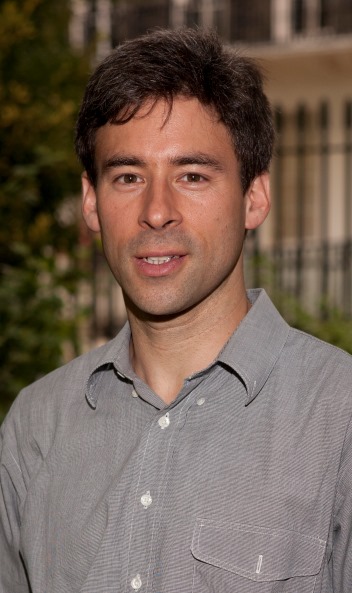
Eric Kaufmann
A deeper unstated implication of Kaufmann’s analysis is that these radical cosmopolitans had goals far beyond civic-minded reform. Their thorough criticism of the West worked to transform America and other Europe-derived societies religiously, economically, and ethnically, even down to the level of gender identity and family relations. The de-Christianisation of America’s public sphere was a first step in deconstructing national identity. This was not civic engagement but cultural warfare, a campaign of wholesale destruction. The radical cultural offensive was successful partly because it was not perceived as such but as part of normal social activity. The revolutionaries’ goals and strategies were a form of fourth generation warfare, meaning conflict that engages at least one non-state actor in a decentralised campaign that blurs the distinction between politics and war.10 The ethos of wholesale cultural destruction has been influential. Even some supposedly moderate multicultural activists boast that their policies have caused Anglo Australia to experience “cultural genocide” through being “supplanted” and “completely transformed”.11
Religion has been a major front in the culture wars for at least a century. It should give pause that radicals and multiculturalists strive to separate the nation from Christianity and turn the secular state against that religion. Andrew Fraser has studied the role of Christianity in forging the English and Australian nations.12 Other theorists have studied religion as a “group evolutionary strategy” that forges cohesion and cooperation.13 Still other analysts observe that religions provide identity markers.14
According to evolutionary biologists D. S. Wilson and K. MacDonald, Christianity has underpinned European cultural group strategies, which release and direct intense altruism. These group strategies defend bio-cultures by clarifying identity and intensifying altruism. Andrew Fraser includes Australia in his observation that the Christian religion, through myth and ritual, has provided motivation essential for ethnic and national defence. England and Australia originated as Christian nations.
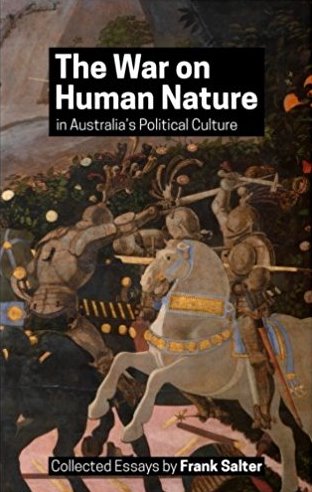
Frank Salter, “The War on Human Nature in Australia’s Political Culture: Collected Essays” (Social Technologies, 2017)
Both Christians and secular patriots need to understand the importance of religion in the culture wars. For Christianity has been a historic identity marker uniting European nations and Europe as a whole against existential and internal threats. Examples include the Medieval Church defending commoner interests by imposing monogamy on the aristocracy,15 the defeat of Muslim invaders at Tours in 732 by Christian France, Christian Wessex under Alfred the Great withstanding invasion by pagan Danes in 878, the Magna Carta of 1215 supported and drafted by the Church which defended the people against arbitrary elite power. For centuries Europe was known as Christendom, in whose name Christian crusaders liberated Jerusalem from Islamic forces in 1099 and an alliance of the German Holy Roman Empire and the Polish-Lithuanian Commonwealth freed Vienna from siege by Ottoman Turks besieging it in 1683. In the twentieth century Christian martyrs witnessed for their faith and captive nations against Nazi and Communist oppressors.
These great deeds could not have been accomplished without a Church which saw its pastoral duty as extending to defence of the people, their nations and civilisation. De-Christianisation has been a successful strategy for breaking down ethnic and national solidarity of Western peoples. Countering this is an important part of an identitarian cultural strategy. A complicating factor is that secularisation has been a part of cultural evolution in addition to the imposed radical component. Restoring Christianity’s identity function needs to be conducted in a manner sensitive to organic cultural change.
The concept of “political warfare” was adopted by Rich Higgins, a security analyst who worked for the National Security Council during the early Trump presidency. Higgins described the unprecedented institutional attacks on Trump and noted that:
Political warfare operates as one of the activities of the “counter-state” and is primarily focused on the resourcing and mobilization of the counter state or the exhaustion and demobilization of the targeted political movement. Political warfare methods can be implemented at strategic, operational, or tactical levels of operation.16
Higgins also described the larger goals of political warfare:
Attacks on President Trump are not just about destroying him, but also about destroying the vision of America that lead to his election. Those individuals and groups seeking the destruction of President Trump actually seek to suffocate the vision of America that made him president. Hence, the end state is not just a delegitimized, destabilized, immobilized and possibly destroyed presidency; but also a demoralized movement composed of a large enough bloc to elect a president that subsequently become[s] self-aware of its own disenfranchisement.17
It is relevant that Higgins knew, as did every political analyst in the U.S., that Trump’s implicit constituency was white America. The deep state’s goal is not only to bring down the Trump presidency but to break the political will of the historic American nation. A similar situation exists in Australia, with the difference that the political leadership is still in the hands of the multicultural establishment.
It is significant that Higgins, a staffer loyal to Trump’s original policies, was fired by a more senior staffer. Training competent and loyal staff is one obvious benefit of cultural activism, which will be discussed further.
IV
Feedback: the Virtuous Cycle
So far I have discussed political and cultural strategies for protecting national identity and thus cohesion. Also important is the relationship between them. Electoral and cultural successes need to feed on one another to produce positive feedback. That salutary process should be facilitated where possible because only exponential growth can allow national movements to acquire the numbers and commitment they need to stand against globalist forces.
The major parties use something like the dual strategy. The Liberal-Nationals coalition talks with think tanks such as the Menzies Research Centre, though there is frequently a disconnect between politicians and intellectuals. An example is Tony Abbott, when he was prime minister, retreating from his election pledge to reform the Orwellian section 18C of the Racial Discrimination Act. He did so against the advice of conservative and libertarian commentators. The Labor Party takes its intellectual brains trust more seriously, based in the universities, the unions, and the ABC.
As noted, the electoral side of Australian nationalism is being kicked off by disaffected voters. Given the great size of Western ethnic groups, still the majorities of their countries, there is large potential for expanding national movements along electoral and cultural fronts. In Australia any national revival will necessarily have Anglos at its heart, because they are two thirds of the population. Increments in electoral support will allow more investment in cultural activism. Likewise ratcheting-up cultural activism is capable of mobilising more voters and recruiting professionals able to fill leadership positions in politics as well as the culture industries.
The cultural front can also help the political front by providing able and loyal staffers. Incompetent or subversive staff are a frequent reason minor parties fail. Patriotic parties must be able to draw on a pool of speech writers, policy analysts and media people who not only support conservative and nationalist values but are able to defend them with social and economic arguments. Promising politicians are too often hobbled, diverted, or hijacked by opportunists.
By constructing parallel institutions in education, media and welfare – all cultural projects – the movement would be better placed to retain its core values as it grows, resisting the temptation to compromise with “big tent” politics. The goal should be to roll back the subversive aspects of the cultural revolution that began in the 1960s while accepting change that is benign or harmless.
Parallel cultural institution should be of sufficiently high quality to be worthy of large investments and philanthropic bequests. Projects should be positive, not reactive. Wealthy individuals will only support groups whose operations are scalable, i.e. whose output rises with investment. Thus they will look for talented individuals and organisations whose performances can be broadcast on radio, television or internet. In the early phase the key ingredient is quality, not quantity.

Irenäus Eibl-Eibesfeldt and Frank Salter (eds.) “Ethnic Conflict and Indoctrination : Altruism and Identity in Evolutionary Perspective” (Herndon: Berghahn, 2001)
Two obvious examples are a news service and, more importantly, an online academy. The latter would teach what the universities refuse to teach. Subjects would include social science that incorporates biosocial theories of human nature. Students would be introduced to research on ethnicity, nationality, social cohesion, political and cultural history, reproductive strategies, gender and race, and comparative civilisation.
The dual culture-politics strategy makes sense only if it includes a reformist critique of the universities’ anti-Western bias. The social sciences and humanities are the jewels in the globalist crown. They must be won back to serve truth. Only by fixing the corruption in higher education will political victories be sustainable.
Political and cultural strategies should be aimed at carving out a constituency. In asymmetrical conflicts the little guy does not have many victories, and when he does, the resulting political and cultural capital is fleeting. So victories should be maximally exploited. The goal should be to complete the feedback loop. Political victories yield platforms, windows of publicity. These should be used to draw people’s attention to important values. Identity comes first, because interests so often depend on who we are.
No greater victory has been won by the enemies of the Australian nation and the West than the obscuring of traditional identities. Those the gods would destroy they first make mad, and loss of identity is madness. Nationalist advocates should expend their limited political capital on clarifying and reaffirming the nation’s core Anglo European identity. That is best achieved through two-way feedback between political and cultural activities.
(a)
Multiculturalism
An arena in which feedback should be effective is multiculturalism. This is an important doctrine used to legitimate mass non-European immigration and suppress majority resistance.
Identitarians need a Plan B in situations where (and while) nationalism has failed to produce a homogeneous nation state. They need a strategy that protects ethnic and civilisational interests in the face of hostile multicultural regimes. In particular, the strategy needs to be workable in a situation where the majority or original nation has been subordinated by the aggressive type of multiculturalism practised in the West. This type consists of an alliance between minority ethnics and big coercive governments, promoted by the left cultural establishment.

Frank Salter, “Welfare, Ethnicity and Altruism : New Data and Evolutionary Theory” (London: Frank Kass, 2004)
A promising strategy is to advocate “democratic multiculturalism”, in which the subaltern majority mobilises to demand group rights in the same way that minorities do. The majority is disadvantaged because, far from being treated as a client by the cosmopolitan elite, it is viewed as the main enemy. Nevertheless, agitating for democratic multiculturalism should yield positive results because the identity politics used to mobilise minorities will also work to some extent with Anglos, more so when their level of discomfort rises. That time is now because the dysfunctions of diversity are already impacting the majority. In the large cities the Anglo middle class is under pressure. Crime increasingly comes from immigrant and indigenous minorities. Whole neighbourhoods have been alienated from the nation. The professional class is rapidly diversifying. At the same time affirmative discrimination targets white males. The traditional working class is abandoned by a Labor Party in thrall to organised ethnic and lifestyle minorities, and the largely Anglo regional areas have been abandoned by a hopelessly liberalised National Party.
Democratic multiculturalism promises to be a powerful strategy if feedback is successfully channeled between electoral and cultural activists. Electoral success can provide resources and growing legislative power. Cultural products can arouse identity and thus prime a growing constituency to vote for identitarian parties. By raising national identity and mobilisation the strategy stands to provide a rear-guard. New parties and activist groups are slowing and blunting multicultural policies such as open borders and the criminalisation of Anglo resistance. The effect of the strategy would be to lay the groundwork for the democratic repossession of the state (federal and state governments). State power can do good and bad. Instead of pulling down the nation and suppressing free speech, government can be used to reverse the destruction and protect civil liberties. Government can consolidate majority support by reforming school curricula and defunding corrupt universities, withdrawing state support from hostile elements of multiculturalism, promoting positive multiculturalism – ethnocentric affirmation of identities instead of vilification of Anglo Australia – and reforming public broadcasting to replace leftist and multicultural bias with high journalistic and cultural standards.
The doctrine of democratic multiculturalism provides a Plan B that can grow alongside and support the Plan A of liberal and ethnic nationalist strategies while giving people a workable way of life in coping with the diversity inflicted by a hostile political class.
(b)
Risks of Feedback
Cultural activists should remain autonomous, speaking truth to power. To do so they should not be wedded to any politician or party. They should throw their support behind politicians who are good for Australia and punish those who are not. Likewise, politicians should support promising cultural projects. They need to gather constituents able to diffuse ideas into the community. There is no ironclad solution. The relationship between political and cultural activism will sometimes need to be explicitly managed. What is certain is that a national revival will be unattainable without positive feedback between them.
A fundamental challenge is weak leadership caused by political expediency. This is most evident in conservative politics. The parliamentary Liberals and Nationals routinely ignore party members and conservative intellectuals. But they do listen to the media, corporate lobbyists and minority ethnic leaders. The cooperation between political and cultural activists must be maintained without degenerating into the typical syndrome of ruthless politicians sacrificing vital national interests and truth for private and party advantage. Equally, political success must not be held hostage to utopian ideology. The two realms must remain autonomous, while remaining in dialogue.
(c)
Personal Activism
Finally, I want to discuss personal strategy. What can one isolated person do with few resources and an imperfect grasp of the situation? Those engaged in asymmetric conflict must think hard about this question. First and always, citizens should strive to learn more about society, human nature, and the political process, circumventing establishment censorship.
Individual activism can be political and cultural. On the political front, join or support a party or special interest group that represents our people directly or indirectly. Choose one that is capable of making a difference. That is usually not a single-issue or tiny party. Whichever party or group you do join, agitate to have it accept members who are open national activists.
Cultural activism is broader and more varied, including individual artistic expression. On the joining side, get involved with or if necessary establish a group performing useful or needed work. Examples include supporting patriotic events such as Australia Day and Anzac Day; celebrating cultural events, such as Anglo-Celtic and European ethnic festivals and local community events. Become involved in community associations such as historical societies and local suburban groups, such as those resisting high-rise property development. Look for ways to help old people and families trapped in hostile immigrant suburbs. Friendly contact can reduce the sense of isolation and threat. Do chores, help with shopping. Alert the local council and police about local crime and anti-social behaviour. Provide information about welfare rights.

Frank Salter, “Emotions in Command: Biology, Bureaucracy, and Cultural Evolution” (Somerset: Transaction, 2008)
As already noted, religion is an important front in the culture war. There are things individuals can do. The religious should get involved in their local churches. Have a presence. Express yourself sincerely while listening to others. Urge ministers, priests and lay people to respect Anglo Australians’ multicultural rights and return the church to its pastoral duty of uniting all communities. Oppose those who seek to hijack religion to harm the nation. The latter point applies to those who are not religious, who can legitimately claim and defend Christianity’s cultural heritage. They can also defend their (and others) ancestral religions against vilification. They can teach children about the religion of their ancestors, the heroes of their faith, their music, art and literature. Cultural Christians can encourage clerics who speak up for the nation and for wholesome values.
Stand up for your beliefs at work and among colleagues and friends. Use common sense. There are often opportunities to express viewpoints in workplaces. That includes responses to workplace surveys and electing union representatives. Communicate your views in a non-aggressive manner that maintains social norms.
Regarding family, it is relevant that the white world is undergoing rapid demographic replacement, most dangerously within countries due to unrestricted immigration. Therefore make good marriages with many children. Share with them your love of our people, their history and traditions. Take steps to shape their education. If the local public schools become toxic due to bullying or radical indoctrination, consider home schooling. There are networks that provide information and help you pool resources with other parents. Do your best to embed your family among its own people. Buy goods and services from patriotic businesses.
Universal nationalism broadens the scope of identitarian activism. The belief that nationhood is beneficial for all peoples, joined with humanitarianism, can produce the motivation to work for other identities. Aid for other national movements can be appropriate. Immigrants who realise they do not belong, who migrated for economic reasons and identify with another nation, should consider leaving. That goes for expatriate Westerners too. There are many exceptions, such as individuals who provide skills in short supply or whose children will assimilate without much changing the local identity. Otherwise, it is unconscionable to play a part in swamping another nation when there is an alternative.
Elites have greater responsibility. Individuals influential in politics, economy or culture should examine their consciences. They have a duty of care, especially to their own nations.
V
Choosing an Adaptive Nationalism
A big decision individuals need to make concerns political goals. What are the most adaptive policies relating to the national question?
Our starting position is nationalist, meaning that the nation is something worth preserving. But what is a nation and why is it valuable? At the start of this essay I described some nationalist policy objectives, without defining nationalism. For present purposes it can be defined as a form of social cohesion or solidarity derived from national identity. At its simplest and most cohesive a nation is an ethnic group living in its homeland, the latter being a named and demarcated territory. An ethnic group is a population with a proper name that believes itself to be descended from common ancestors.
Politicians refer to the nation while perpetuating mass indiscriminate immigration and approving a coercive multicultural apparatus that subordinates the founding historic nation. Are such politicians nationalists and can their policies produce social cohesion? To decide that, we need to examine doctrines that have attracted the nationalist label.
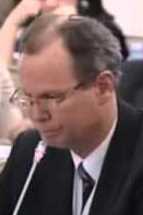
Dr. Frank Salter
— Dr. Frank Salter received his PhD in Australia (Griffith University) but spent most of his career at the Max Planck Institute for Behavioural Physiology in Germany. Frank has taught in Britain, the US, Central and Eastern Europe. He has authored and co-authored various peer reviewed articles and essays. His most recent book is The War on Human Nature in Australia’s Political Culture: Collected Essays (Social Technologies, 2017). Now returned to his native Australia, he consults on policy and management issues. Dr. Salter’s last contribution to the Sydney Traditionalist Forum was to its 2015 Symposium (“Quo Vadis Conservatism? Do Traditionalists Have a Place in the Current Party Political System?”) titled “Australian Conservatism After Abbott: The Need for Social Movements.”
Endnotes:
- John Black, “Casualties of neglect await chance to thrash the majors” The Weekend Australian (4-5 March (2017) at pp. 18-19.
- John Black, “As easy as 457: Turnbull aims for key demographic blocs” The Weekend Australian (22-23 April 2017) at p. 16.
- Rick Morton, “Mainlanders changing the face of a nation on the move” The Weekend Australian (online) (15 April 2017) <theaustralian.com.au> (accessed 19 April 2017); Bernard Salt, “A tale of two diversities: ‘Eastralians’ and the west” The Weekend Australian (online) (15 April 2017) <theaustralian.com.au> (accessed 19 April 2017).
- Miranda Devine, “Reverse Racism is now acceptable in Australia” The Daily Telegraph (online) (2 April 2017 @ 12:00) <dailytelegraph.com.au> (accessed 6 April 2017).
- Jennifer Oriel, “New Right leads the fight to reclaim Western virtues” The Australian (6 March 2017) at p. 10.
- Hans-Hermann Hoppe, “Libertarianism and the ‘Alt-Right’”, Address to the Property and Freedom Society 12th Annual Conference (Bodrum, Turkey, 14-19 Sept 2017) at c. 39:15m.
- Anna Broinowski, Please explain: The rise, Fall and Rise Again of Pauline Hanson (Viking, 2017).
- Frank K. Salter, The War on Human Nature in Australia’s Political Culture (Social Technologies, 2017).
- Jonathan Haidt, “The bright future of post-partisan social psychology” Address to the Annual Conference of the Society for Personality and Social Psychology (San Antonio: Texas, 27 Jan 2011).
- William S. Lind, 4th Generation Warfare Handbook (Castalia House, 2015).
- Greg Sheridan, “Constitutional Change will Divide not Unite the Nation” The Australian (online) (2014) <theaustralian.com.au> (accessed 5 December 2017).
- Kevin B. MacDonald, A People That Shall Dwell Alone (Westport, Conn.: Praeger, 1994); Andrew Fraser, The WASP Question (London: Arktos, 2011).
- David Sloan Wilson, Darwin’s Cathedral: The Organismic Nature of Religion (Chicago: University of Chicago Press, 2002).
- Pierre Van Den Berghe, The Ethnic Phenomenon (New York: Elsevier, 1981).
- Kevin B. MacDonald, “The establishment and maintenance of socially imposed monogamy in Western Europe” Politics and the Life Sciences (1995) 14(1) at pp. 3-46.
- Richard Higgins, Memorandum: “POTUS and Political Warfare” (Washington, D.C., National Security Council, 2017) at pp. 6-7.
- Ibid. at p 12.
Citation Style:
This article is to be cited according to the following convention:
Frank Salter, “Strategic Considerations for Anglo-Australian Identitarians – Part I” SydneyTrads – Weblog of the Sydney Traditionalist Forum (24 December 2017) <sydneytrads.com/2017/12/24/symposium-ii-frank-salter-pt-i> (accessed [date]).




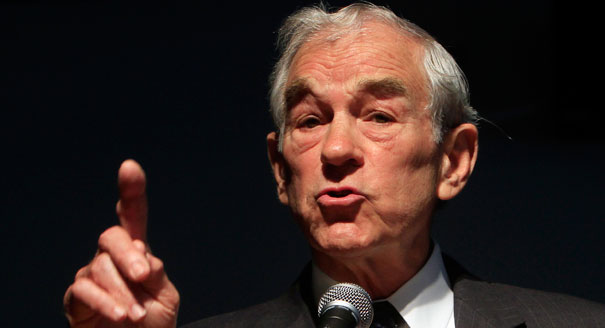
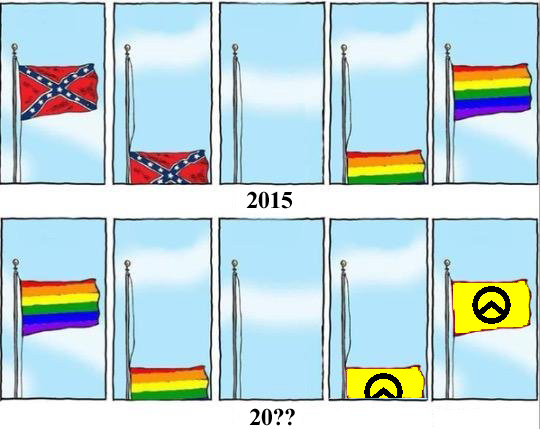

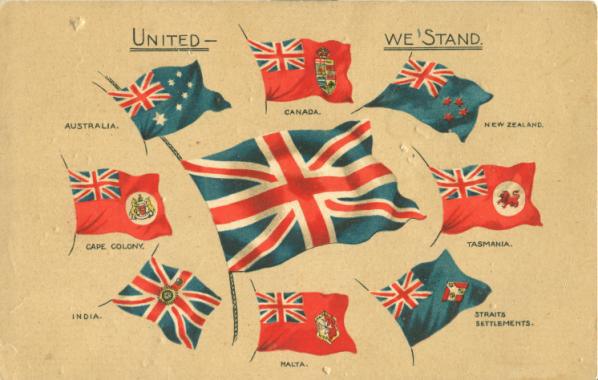
Leave a comment